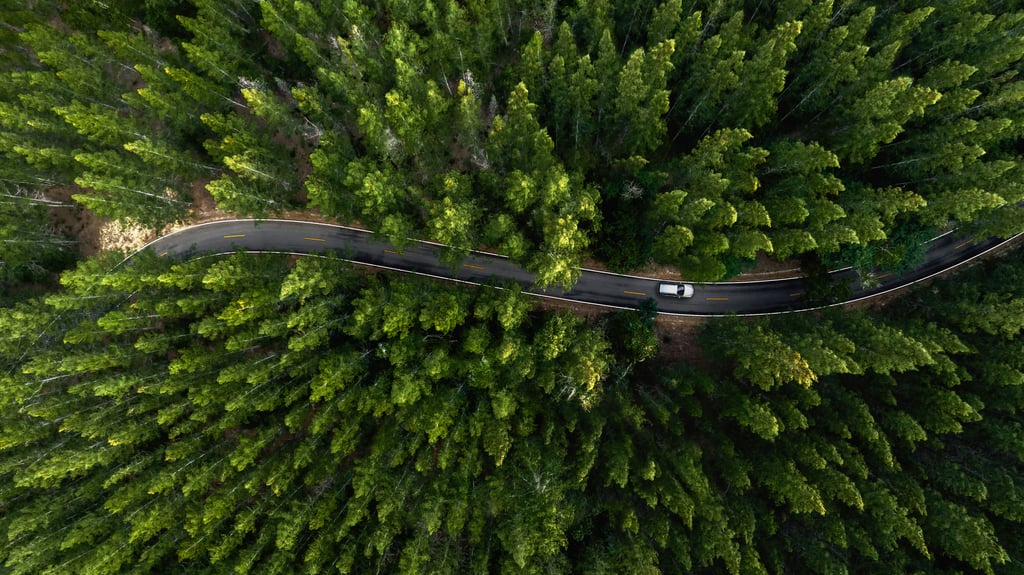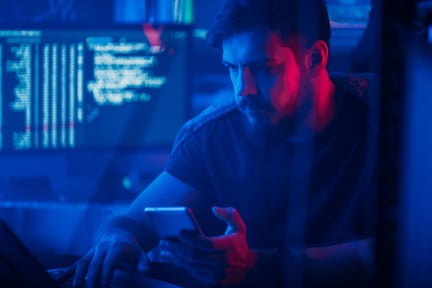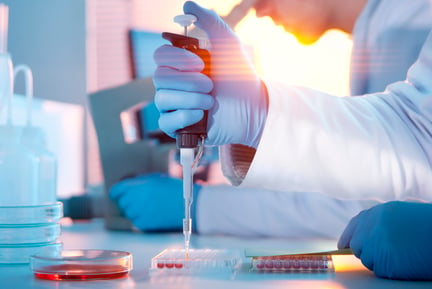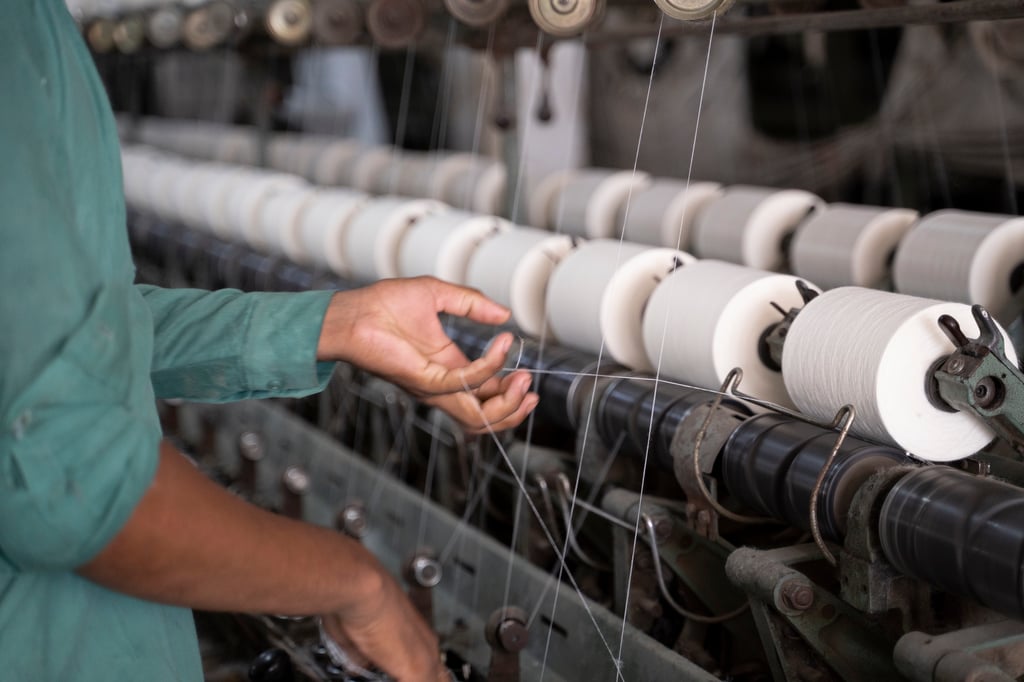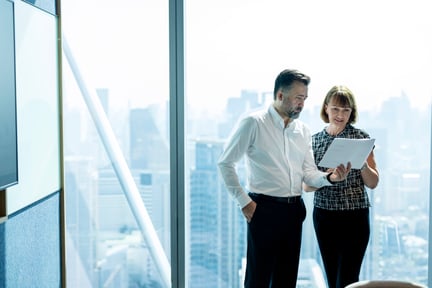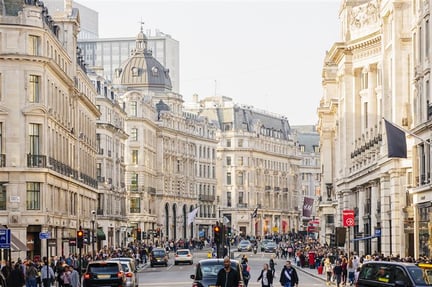The EU states that if no action is taken, ‘by 2050 there will be more plastic than fish in the oceans’
The EU states that if no action is taken, ‘by 2050 there will be more plastic than fish in the oceans’1 – a fact which concerned Technology Innovation Manager Rebecca Sykes to such an extent that she decided to put her job at assurance business LRQA on hold and do something about it. Cue the launch of the Clean Seas Odyssey – a four-month discovery and clean-up programme which involved a 1000-mile sailing trip to better understand the extent of the problem.
“More than 150 million tonnes of plastic exist in the oceans today,” says Rebecca. “Plastics make up 85% of beach litter worldwide, 61% of which are single-use plastics and mostly linked to the food industry such as crisp packets, sweet wrappers, food containers and cutlery. This poses a physical threat to wildlife and toxicological damage to wildlife and humans.
“When plastic decomposes, it breaks down into smaller and smaller pieces, becoming ‘microplastic’. These tiny fragments often end up throughout the marine food web including in fish. The ‘blue revolution’ encourages us to eat more seafood and less meat, yet our fish are increasingly full of plastic. We’ve seen growth of 9% per year in the worldwide aquaculture industry which has now reached 50 million tonnes, up from two million in 1950. By eating more fish however, we could ingest more plastic if we don’t deal with this situation. We already know that plastic fibres have been found in bottled and tap water and settle on our plates from the air around us; our environment is becoming increasing full of plastic fibres and particles. Our own health could be compromised by exposure to chemicals through the food we eat and this is an area of emerging research. The chances of us eating plastic are increasingly high and the consequences could be unprecedented. We have to make systemic changes and we need to act now.”
Rebecca took a sabbatical from LRQA, an organisation which supports its staff in personal development. As a classification, assurance and compliance specialist in both the marine and food industries, LRQA was keen for Rebecca to gain insight, knowledge and skills which could add value to the business. Rebecca joined partner Nick Beck – both commercial skippers - on a four-month voyage of discovery; sailing their boat, the Amelie Rose, around the English Channel, visiting 33 local ports and harbours and learning how to tackle plastic pollution. They sailed with a crew of 13 joining for individual legs and, en-route, interviewed and learned from scientists, researchers, activists and innovators about action required to tackle the problem.
Visit cleanseasodyssey.org
Volunteers supported the mission by joining beach cleans, sharing the voyage on social media and by donating funds through a dedicated website
Visit cleanseasodyssey.orgFindings
“On the way we met and interviewed professors and scientific researchers, waste management experts, artists, experts in the circular economy and economics, business managers, environmental charities and community leaders to learn from their expertise,” explains Rebecca. “We shared this insight through a series of open days attended by 400 people. With the crew’s help, we have also contributed to primary research on microplastics in association with Birmingham University, collecting over 68 kg of sediment from 13 locations in five river estuaries and two island beaches. The analysis is ongoing.
“The impacts of plastic on the environment continue to be a subject of research but concerns over economic impact on fisheries, aquaculture, tourism, shipping together with human and marine health impacts through toxicological risk is sufficient to warrant action now.
“There are also concerns over potential contributions to climate change through released gases but also through buoyant particles slowing the sea’s processes in sequestering carbon onto the seafloor as part of the carbon cycle.”
They learned that the solutions to this complex topic are not obvious and knee-jerk reactions are not going to form effective and sustainable solutions. “In some cases, bioplastics and composable plastics have been used to replace non-biodegradable plastics under public pressure, but information and messaging around their degradability is even more confused and misunderstood than the messaging around what can and can’t be recycled,” adds Rebecca.
“Biodegradable plastics are only biodegradable under certain conditions – and the collection and processing methods required often aren’t available. Without these, the replacements are not effective at reducing society’s burden of waste. Also, these materials do not biodegrade in the natural environment as the required conditions do not exist, so plastic pollution is not reduced. We need to be careful in deciding when best to use these materials; ideally when their disposal can be closely managed.”
It became apparent to the Rebecca and Nick that systemic change is needed. “Lower grade plastics, mostly non-PET and HDPE plastic, have no or little market value at present. The continued use of these materials, especially for single use food consumption, and the export of these materials to countries with little or no waste management infrastructure and high records of ocean plastic pollution is appalling. If indeed we cannot avoid plastic right now, and carbon emissions from food waste are a concern, then manufacturers and the waste industry need to collaborate to develop sustainable solutions. There needs to be a requirement for packaging procurers to design packaging with end-of-use options in mind, wherever in the world that packaging ends up. The recovery and re-use of materials by manufacturers needs to be incentivised to move us to a circular economy with closed loop supply chains.”
“From the perspective of ocean plastic pollution, there is certainly a bigger problem of waste management to be tackled in developing regions of the world, but the problem is present on our coasts and beaches along the English Channel too. Fishermen on the south coast of the UK have stopped laying nets in some areas as they say it is no longer cost effective due to the amount of plastic they catch.”
More information on what was learned can be found on the website
Can the food industry bin plastic for good?
Working with over 35,000 food businesses, LRQA has delivered certification services to help drive food industry best standards for more than three decades. These businesses span the farm to fork supply chain with many involved in packaging. While some of the largest food businesses are seeking alternative products to ensure more sustainable packaging, is it realistic to think we may be plastic-free by 2050?
Vincent Doumeizel, Vice President Food & Sustainability at LRQA comments: “Rebecca has experienced first-hand just how serious this issue is and it’s great that she’s so passionate about raising awareness. Going plastic free however would not be a viable option right now. From airtight wraps to containers, plastic packaging plays a key role in enabling a safe food system. It means we can freeze foods for longer term storage and preserve food freshness for greater periods of time. The main role of food packaging is to protect food products from outside influences and damage but it has secondary benefits of convenience, traceability and tamper indication. It also limits food waste by preserving food at its best and in various quantities at each stage of the food supply chain. The longer a food item stays fresh, the greater its chance of being eaten. Studies have shown that bananas wrapped in plastic last 20 days longer than their unwrapped counterparts and beef wrapped in plastic vacuum packaging lasts almost 30 days longer.
“The reason plastic is the most used type of packaging is because the applications are so diverse. All in all, plastic has supported a food system that has been essential in providing safe food during a population growth from 5bn to 7.5bn. However, as Rebecca rightly points out, we’re seeing that the environmental price is way too high and there is growing recognition that our dependence on plastic needs to change. It won’t be a case of eliminating it altogether but about potentially using it less and being more sustainable with how we use it. LRQA is right behind this – we stand alongside industry leaders in working towards a cleaner, more sustainable world and have recently become a founding member of the UN Group for Sustainable Ocean Business.
We are seeing action by the industry. Many food companies are pledging to increase the amount of recycled plastic they use
Action or avoidance?
He continues: “We are seeing action by the industry. Many food companies are pledging to increase the amount of recycled plastic they use, or are investing in the development of more sustainable options. Food packaging is amongst the most recycled packaging and we are seeing increasing recycling rates year on year. Yet bottles and their lids account for around one fifth of all the sea plastic according to EU reports. The European Parliament has recently voted for a complete ban on a range of single-use plastics across the union in a bid to stop polluting the oceans to such an extent – with the hope that this legislation will come into effect across EU countries within three years. This is a great start but includes single use plastics with readily available alternatives, such as paper straws and cardboard containers. It’s much more difficult when alternatives don’t exist such as sandwich wrappers and meat packaging.
“Food companies are now taking more responsibility. Nestle Waters North America has announced it will achieve 25% recycled plastic use across its US product portfolio by 2021 and set a bold ambition to reach 50% by 2025 and is committed to taking the ‘single use out of single-use bottles’. Nestle globally has an ambition to make 100% of its packaging recyclable or reusable by 2025.
“The Coca-Cola Company recently signed the Ocean Plastics Charter to ensure 100% of plastics are recyclable by 2030. Barilla has developed Guidelines for Sustainable Packaging Design and sells pasta in cardboard boxes. These are all positive steps, especially when taken alongside industry innovation to come up with some real alternatives to plastic.
“We met earlier this year with Ooho – the company behind the much-publicised edible water bubble made from alginate. Plant based plastics are being investigated as alternatives to plastic bottles and food containers, using seaweed or mushroom roots. Our new understanding on microbiome also opens new doors both in terms of plastic degradation (specific bacteria could be used to degrade plastic) or when it comes to new packaging made from complex and biodegradable microbiome. There is some real innovation happening in the sector but to make it happen on a large scale will take a combination of the necessary primary production on a large scale, cost efficiencies, possibly a change in legislation and increasing pressure from the public.
“Once we’re at that stage, I’m confident that there will be an industry best practice standard developed and companies that have made significant achievements in plastic reduction and the use of recyclable materials will then be able to verify how well they are doing.”
Addicted to plastic?
Vincent continues: “We are seeing more people using portable cutlery, metal straws, paper food bags, resuable water bottles and coffee cups. There’s a revival of traditional markets and growing trend for zero-waste shops that are packaging free. Millennials (25-35) are a generation much more concerned about the food they eat and the impact it has on the environment. There’s a call for more ‘natural’ and ‘locally sourced’ food. The public can really help drive change. We are the first generation to know the consequences of our addiction to plastic on the global ecosystem. This awareness brings a level of responsibility with the opportunity to create a different future. We have a choice when we purchase food to buy plastic or not.”
Rebecca adds; “The amount of plastic waste in our seas and along our coastlines is reaching crisis point. It’s affecting the oceans and the creatures that live there and the evidence points to concerns for our health. We couldn’t bear to stand by, idly waiting for ‘someone to do something’. We know there are no easy solutions and we must ensure we don’t create a worse environmental problem as we try to fix this one. The mantra of reduce, reuse, recycle is something we should all aim to achieve but alone will not solve the problem which is that we are burning through the finite resources of our planet at an ever-increasing pace.”
“We believe that together we need to embark on a journey to understand the benefits of a circular economy, where, for non-biological materials, not only the packaging but also the contents are designed from first principles to be used, reclaimed, re-made and used again in a near infinite cycle. We can stem this plastic tide, but our best chance to do so is to do it together. We are determined to try.”

